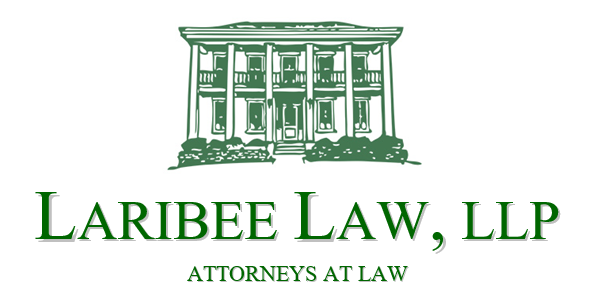Gifting Personal Property: When a Gift is Not a Gift.
Michael L. Laribee, Esq.

Bertha owned an antique melodeon pump organ. It was produced in 1850. After restoration, it was worth more than $18,000. Bertha and her niece, Harmony, spent countless hours playing the melodeon together in the parlor of Bertha’s home. Harmony was earning a degree in music therapy and appreciated the unique qualities of the old instrument.
Last Will and TestamentOne day, Bertha said that she was giving the melodeon to Harmony. “It’s all yours,” Bertha said smiling. Harmony was thrilled. But, Harmony had no room for the melodeon in her small dorm room on campus. So, the melodeon remained in Bertha’s parlor. After college, Harmony traveled throughout Europe teaching music theory. The melodeon stayed at Bertha’s house until she passed away several years later.
When Harmony returned from Europe for Bertha’s funeral, she was surprised to learn that Bertha’s daughter, Aria, moved the melodeon to her house. Harmony argued that Bertha gave her the melodeon several years ago. She recounted the statement Bertha made while they sat in Bertha’s parlor.
Aria, however, said she inherited the instrument from her mother. She explained that Bertha’s last will and testament listed her as the sole beneficiary. Harmony was not named as a beneficiary and the melodeon was not listed in the will.
Does Harmony have a successful claim of ownership to the melodeon? It is not likely.
To be valid, a gift must meet certain criteria. First, a gift requires an intention on the part of the donor (the person making the gift) to part with the property. The donor must also have the mental capacity to make the gift.
Second, the donor must relinquish all control over the property by delivering it to the donee (the person receiving the gift). Simply, the gift is not complete if the donor keeps the item or requires return of the item at a later date. The mere announcement of giving property to another in the future does not have the effect of transferring title. The gift must be immediate, unconditional, and irrevocable. There can be no strings attached.
Third, the donee must accept the property to complete the gifting process.
In our example, the gift to Harmony would have been complete if she took physical possession of the melodium at the time Bertha said it was hers. Or, Bertha could have made a specific bequest to Harmony in a properly executed testamentary instrument, like a will or a trust agreement.
The passing of personal property and effects can be a difficult part of estate administrations. Often, beneficiaries have strong emotional ties to family heirlooms. These assets are not easy to divide equally among several people. They normally have no title or registration on which to designate a beneficiary. To avoid confusion and disagreement among family members, an owner may consider gifting the asset prior to death. But the gift must be completed properly. It is important to consult with a trusted probate attorney to make sure your assets are distributed to beneficiaries as intended.
Michael Laribee is a partner in the Medina law firm Laribee & Hertrick, LLP. This article is intended to provide general information about the law. It is not intended to give legal advice. Readers are urged to seek advice from an attorney regarding their specific issues and rights.
Need a lawyer or have legal questions? Contact Attorneys in Medina from Laribee & Hertrick, LLP.
Related law articles:
Gift Tax: Who Pays the Bill?
Gifted Property vs. Inherited Property – Tax Issues to Consider


